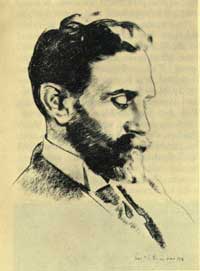19 August 2004 Edition
Revisiting Casement

Roger Casement
BOOK REVIEW
Roger Casement in Death: or Haunting the Free State
By WJ McCormack
University College
Dublin Press
€21.50 paperback/
€44 hardback
Tuesday 3 August marked the 88th anniversary of Roger Casement's execution in Pentonville Jail. This work is the result of an inquiry by a forensics professor, WJ McCormack, in determining whether Casement's 'black diaries' were forged or not.
Professor McCormack is a scientist and has used scientific methods in determining the veracity of the diaries. Therefore, the object of the book is to bring to a close the controversy surrounding this affair. He has authenticated the diaries as being genuine, without any tampering whatsoever. This is the conclusion of his analysis and it is widely regarded as reliable.
Given the explicit material contained in Casement's diary as regards his frequent and promiscuous homosexual encounters, it was initially believed that these diaries were forged by the British authorities in order to discredit his name. At the time, homosexuality was a moral anathema in the puritanical society of the early 20th Century. While, naturally enough, it was in the interest of British imperialists to ruin his reputation as an outstanding humanitarian, Irish republicans felt it necessary to defend him against these accusations.
Roger Casement was an upper-class Anglo-Irishman, born in Dublin, who worked for the British consular service in Africa between 1892 to 1902. During his tenure there, he reported and publicised to the whole world the appalling and inhuman treatment meted out by Belgian imperialists on the native population of the Congo, particularly in their exploitative mining operations.
In 1910-'11, he investigated and exposed the brutal treatment and vicious exploitation of Native Americans in Brazil. For these humanitarian expositions, he was knighted in 1911.
Apart from being a genuine humanitarian and anti-imperialist, he was also a dedicated Irish nationalist and would stake everything he had to pursue these beliefs. His involvement in 1916 led to his capture.
The British used the 'black diaries' in order to justify his execution.
The book also serves as a biography of Casement's life, though it has to be said that the style and the layout of the book is very disjointed. The editor should be shot... Sorry, he should be reprimanded for his lack of professionalism! There seems to be a lot of irrelevant nonsense in the book that leaves the reader slightly bewildered as to what the author is trying to achieve.
Apart from the scientific analysis, I'm sure that there are better biographies out there.
BY CATHAL Ó MURCHÚ


